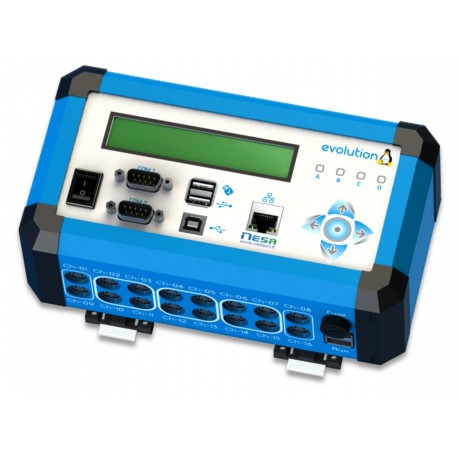If you’ve ever worked in manufacturing, research, logistics, healthcare, building, or related industries, you may be familiar with data loggers. These imperative devices help workers collect data, follow industry regulations, and maintain quality control.
Many kinds of data loggers exist. Some are intended for highly specific use in certain industries, while others have more general applications. In a broad sense, data loggers record location-based data or data over time.
Because there are so many different kinds of data loggers on the market, it can be hard to know which one to buy. With these top tips, you should have a much better understanding of which data loggers will work best for your industry.
Tip #1: Know your industry
When buying a data logger, it’s vital to understand your industry and its needs. What kind of data are you hoping to measure?
If you work in a temperature-sensitive environment, for example, you may be after a temperature logger or humidity logger. Designed for use in warehouses, greenhouses, and calibration rooms, these specialized devices send real-time alerts about unexpected temperature or humidity changes. In this way, your workers can quickly react to and rectify any abnormalities.
If you work in a laboratory and need to measure liquids and gases, consider a pressure data logger. These helpful devices can measure gas or fluid flow, speed, water level, altitude, and other variables.
Tip #2: Look for long-lasting options
Data loggers vary in structure, design, and durability. Some devices are better suited for hazardous environments or fieldwork. If you work in isolated environments without easy access to electricity, you’ll want to choose a data logger with the best possible battery life.
Better battery life and durability also means less worry about replacement. For reliability and accuracy, choose a data logger with a battery life of one year or more.
It’s also worth considering the environment in which you’ll be working. For office environments, a plastic-encased data logger will do just fine. In harsher environments, however, you may need a moisture-protected or heavy-duty device.
Tip #3: Consider software capabilities
Look into the software capabilities of the data logger you choose. Different brands and styles will come with specialized built-in software. As a general tip, seek out software that works with Windows or Mac operating systems, voice over systems depending on the OS your workers use most often.
Additionally, look for data loggers with highly intuitive and user-friendly software. Some software packages, for example, can plot, merge, crop, and append data, making the information easy to share and understand. Some software can also export data to Microsoft Excel and other programs.
The complexity and required applications of your data will determine the level of software you’ll need.
Conclusion
Overall, when searching for a data logger, the preeminent factor is to understand your industry. Look closely into the needs of your workers, the type of data you’re planning to collect, and how it will be used and shared.
Once you fully understand your industry’s needs, it will be easy to select the perfect data logger for your business.
Follow Techiemag for more!
Table of Contents





![[Jan 2024] EZTV Proxy | Unblock EZTV | EZTV Alternatives eztv](https://www.techiemag.net/wp-content/uploads/2020/05/eztv-300x194.png)


